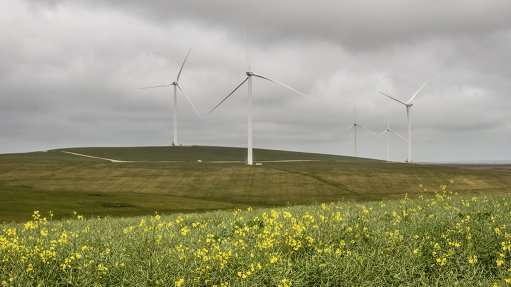
Excelsior Wind farm
Pan-African renewable power producer company BioTherm Energy, backed by emerging market investor Actis, has announced the official start of operations at its Excelsior Wind Energy Facility at the end of 2020.
This marks the completion of its third independent power producer (IPP) project in South Africa during the year as part of the fourth round of the government’s Renewable Energy Independent Power Producer Procurement Programme, boasting a combined generating capacity of 165 MW.
The 33 MW Excelsior Wind Energy Facility, in the Western Cape, successfully achieved commercial operation on December 23, adding to the 132 MW of combined capacity of the solar plants Aggeneys and Konkoonsies II earlier in the year.
“We ended 2020 on a high note, having led three IPPs to commercial operations, while having connected our fourth project to the grid expecting commercial operation in the first quarter of this year, which will add another 120 MW to our generating capacity in South Africa,” says BioTherm Energy CEO Robert Skjodt.
Thebe Investment Corporation has a 37.5% stake in BioTherm Energy’s four South African energy projects.
Excelsior Wind has a direct connection to the Vryheid substation, via an on-site substation and a dedicated 132 kV power line and will feed over 132 GWh/y of renewable power into the national grid.
The wind farm was built on 2 300 ha of land in Swellendam, an area known as one of the largest agricultural producing areas in the country. By the very nature of wind power, over 90% of the land on the site will continue to yield agricultural crops as well as sustain livestock farming.
Construction started two years ago and provided jobs to about 380 workers, the majority of which came from its surrounding beneficiary communities within the Overberg municipality.
These are the same communities that will benefit from economic development programmes, through the 20-year operations period of the plant.
The focus of the economic development initiatives will include education, skills development and environmental stewardship, in addition to others.
During the construction programme a number of early spend programmes were implemented, focused on the provision of secondary school study guides across various subjects for Grades 8 to 12.
This is in addition to the various Covid-19 relief programmes, aimed at alleviating the impact of the pandemic on local communities.